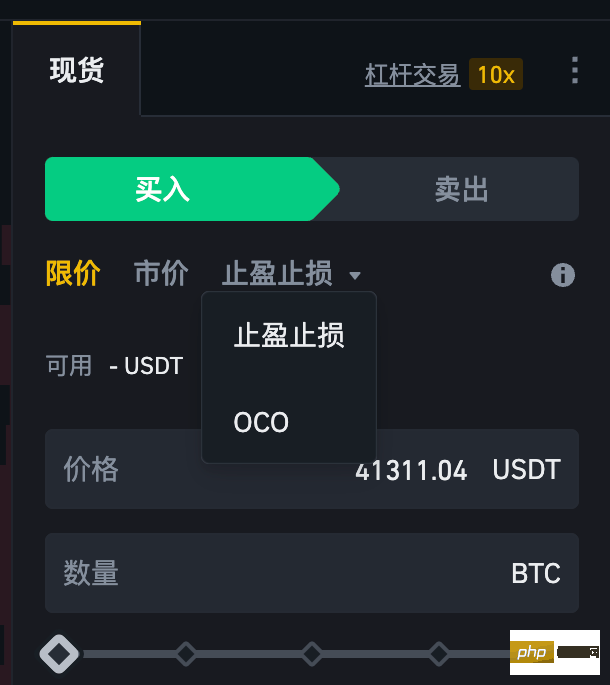 web3.0
web3.0 In the first round of Jupiter's LFG launchpad, the highest vote won and $ZEUS tokens will be issued on April 4. What is the potential of Zeus Network?
In the first round of Jupiter's LFG launchpad, the highest vote won and $ZEUS tokens will be issued on April 4. What is the potential of Zeus Network?At 9pm on April 4th, Jupiter LFG Launchpad’s first public offering project Zeus Network will release its $ZEUS tokens and provide more than 300,000 tokens to Jupiter voting participants, Zealy participants and Dappie Gang NFT holders. The address is used to issue airdrops.
Jupiter, an LFG Launchpad integrated with the Solana trading aggregator, is about to launch its first LFG poll. The voting will select two premium projects, giving the winners the opportunity to issue tokens through the platform. The voting attracted 1.75 million people to participate, and the cross-chain communication project Zeus Network won with 58% of the votes.

Zeus Network recently announced that it has received support from a number of investors and investment institutions, including a new round of financing announced on the evening of April 3. The financing totaled US$8 million, led by Mechanism Capital, with participation from OKX Ventures, Animoca Ventures, Big Brain Holdings, Lemniscap and The Spartan Group, including Solana co-founder Anatoly Yakovenko, Stacks co-founder Supported by multiple investors including Muneeb Ali and Mechanism Capital founder Andrew Kang.
Last year, Zeus Network emerged into the public eye as a native, permissionless communications layer between Solana and Bitcoin. The project continues to grow, but its goals remain the same and it pursues more than just that.
Zeus Network: The potential and possibilities of the cross-chain communication layer
Different from traditional bridging mechanisms, Zeus Network does not simply transfer assets from one blockchain to another. Instead, it securely locks Bitcoin on the BTC blockchain and transfers its value to Solana by introducing a communications layer. This provides users with an efficient and secure asset transfer and trading experience.
However, the function of Zeus Network as a cross-chain communication layer does not end there. Based on the high performance and high throughput of the SVM (Solana Virtual Machine) Zeus layer, it can not only introduce Bitcoin liquidity to In the Solana ecosystem, the application of cross-chain communication can also be extended to any blockchain, providing the possibility of interoperability between different blockchains.
Zeus Network has the ability to connect multiple blockchain networks. At this stage, as a bridge connecting multiple blockchain networks, it mainly focuses on connecting different blockchains with Solana. This cross-chain capability enables developers to interact and communicate between dApps built on Solana and other blockchains, enabling cross-chain transmission of data and value. In the future, Zeus Network is expected to further expand its cross-chain communication capabilities, enabling cross-chain dApps to run and be deployed on multiple blockchains, thereby expanding its application scope and providing users with a wider range of services and application scenarios.

As a platform to connect and communicate different blockchain networks, starting from the Solana ecosystem, Zeus Network is expected to promote the integration and development of the blockchain ecosystem, providing developers and Users are provided with solutions that seamlessly connect different blockchains. This will create more space and possibilities for innovation and promote the construction of more complex and feature-rich blockchain applications.
The first application in the ecosystem will release BTC liquidity to Solana
Based on the innovative Zeus consensus, the first step of Zeus Network aims to seamlessly promote the interconnection between BTC and Solana , providing a safe, efficient and decentralized solution for interacting with Bitcoin on the Solana blockchain, and the launch of its flagship project APOLLO will start this breakthrough journey of exploration. Apollo is a comprehensive DeFi infrastructure that uses zBTC and Zeus consensus mechanisms to introduce and manage BTC liquidity in the Solana ecosystem.
zBTC represents an intrinsic asset in the Solana network and ensures 1:1 anchoring to Bitcoin through a trustless, decentralized two-way peg (2WP) mechanism. The process is based on a trust-based protocol that allows users to lock their BTC on the Bitcoin blockchain and use and trade it as zBTC on Solana. By adopting multi-signature alliance verification and SPV verification mechanisms, zBTC achieves the security of Bitcoin during the locking and unlocking process, preventing potential fraud or double payment and other issues, and also makes BTC transactions on Solana more efficient and lightweight. , while ensuring the safe locking of Bitcoin and liquidity on Solana.

This mechanism can bring more liquidity and use cases to the Solana ecosystem and promote the development of the DeFi ecosystem. For example, zBTC can cooperate with DeFi protocols such as Solend, marginfi, Kamino Finance, etc., as one of the liquidity providing assets of various DeFi protocols on Solana, providing users with more liquidity options, or as a mortgage asset for lending and leverage. transactions, etc., as well as jointly develop innovative financial products and services, etc. It helps improve the diversity and integrity of the DeFi ecosystem and provides users with a wider range of financial services and a better user experience.
Utility Token $ZEUS: Nearly half is used to promote ecological and community development
$The total supply of ZEUS tokens is 1 billion, of which 40% will be used to promote Zeus The growth and development of the network ecosystem and community, of which 10% of the tokens will be released at the Token Generation Event (TGE), including airdrops to Zeus community users, etc. As a utility token, $ZEUS also has multiple functions and values in Zeus Network and is suitable for multiple application scenarios, including:
- Security: Holders can utilize $ZEUS token enhancements Security features within the Zeus network ecosystem ensure a robust and protected environment for transactions and interactions.
- Gas/Fuel/Service Access: $ZEUS tokens serve as a means to access and utilize various services within the Zeus network ecosystem, such as paying transaction fees, providing gas for smart contracts, or accessing specific network functions .
- Governance: $ZEUS token holders have the right to participate in governance decisions regarding the future development and direction of the Zeus network platform. This includes voting on proposals, protocol upgrades, and other key decisions that impact the ecosystem.
- Incentives: Participants in the Zeus Network ecosystem may receive incentives in the form of $ZEUS tokens for their contributions to the growth and functionality of the network. This may include rewards for providing liquidity, staking tokens, or participating in community initiatives.
In addition to nearly half of the tokens belonging to the ecosystem and community, according to the token economics of $ZEUS, $ZEUS will also be distributed to early supporters, Launchpad sales, liquidity, and foundation reserves , teams and advisors, with different cliffs and vesting periods tailored to each segment to ensure coordinated and sustainable distribution:
- Early backers and sponsors of the Zeus Network (10% ), 5% of which is released at TGE, with a 3-month waiting period and a 15-month vesting period;
- Jupiter Launchpad sales (5%), 100% of which is released at TGE;
- Liquidity, providing market makers and exchanges (5%), 100% will be released at TGE;
- Ecosystem and community growth (40%), 10% of which will be released in TGE Released at TGE, 24-month linear vesting;
- Foundation reserve (20%) to support continued operations and future development, 10% of which is released at TGE, 24-month linear vesting;
- Core team members (15%) involved in building and maintaining the Zeus network, tokens are not released during TGE, there is a 3-month waiting period, followed by a 15-month vesting period;
- is Zeus The network program provides guidance and support to advisors (5%), the 5% portion of which is released at the time of TGE, with a 6-month waiting period and a 15-month vesting period.

#According to the technology roadmap recently announced by the project party, this year it will focus on promoting the establishment of Zeus network nodes, enhancing the utility of Zeus network tokens, and enabling native BTC staking ( APOLLO) three key areas, and continue to upgrade and optimize the Zeus Layer mainnet beta version. Among them, Zeus will launch the Muses upgrade in the second quarter of this year, focusing on developing Zeus nodes to ensure the operation of the network, and also promote the launch of Apollo test network V0.3; launch the Gaia upgrade in the third quarter, and introduce $ZEUS pledge and Native $BTC staking; Athena upgrade launched in the fourth quarter and Zeus Programming Library (ZPL) released for project development.
As it stands, Zeus Network plays an important role in unlocking the full potential of Bitcoin on Solana. Through its unique cross-chain communication mechanism, Zeus Network ensures the secure verification of Bitcoin-side assets and achieves seamless communication with Solana, paving the way to unlock the unlimited possibilities of Bitcoin on Solana.
As one of the enablers supporting the Solana ecosystem, Zeus Network stands out through its unique interoperability. In the future, the goal is to leverage the Zeus consensus and Solana virtual machine to overcome the limitations of Bitcoin and facilitate token swaps, wallet integrations, BTC layer 2 integration, and more features on the Zeus network. If these efforts are implemented, they will further promote the development of the blockchain field and bring users a richer and faster financial experience.
The above is the detailed content of In the first round of Jupiter's LFG launchpad, the highest vote won and $ZEUS tokens will be issued on April 4. What is the potential of Zeus Network?. For more information, please follow other related articles on the PHP Chinese website!
 区块链只能用go语言吗Dec 27, 2022 pm 05:25 PM
区块链只能用go语言吗Dec 27, 2022 pm 05:25 PM不是。区块链是一种编程思想,原则上使用任何一种编程语言都可以实现,比如Solidity、C++、C#、Java、javascript、Go都可以实现区块链的开发;区块链技术涉及的面很广,而编程语言只是一种手段,把设计理念用代码呈现出来,做成产品服务用户。
 什么是OCO订单?Apr 25, 2023 am 11:26 AM
什么是OCO订单?Apr 25, 2023 am 11:26 AM二选一订单(OneCancelstheOther,简称OCO)可让您同时下达两个订单。它结合了限价单和限价止损单,但只能执行其中一个。换句话说,只要其中的限价单被部分或全部成交、止盈止损单被触发,另一个订单将自动取消。请注意,取消其中一个订单也会同时取消另一个订单。在币安交易平台进行交易时,您可以将二选一订单作为交易自动化的基本形式。这个功能可让您选择同时下达两个限价单,从而有助于止盈和最大程度减少潜在损失。如何使用二选一订单?登录您的币安帐户之后,请前往基本交易界面,找到下图所示的交易区域。点
 为什么用go语言写区块链Mar 04, 2021 pm 03:42 PM
为什么用go语言写区块链Mar 04, 2021 pm 03:42 PM原因:1、Go语言具有部署简单、性能优秀、并行执行性能好、良好语言设计、内置大量库、团队牛逼等优势。2、以太坊和超级账本都选择使用Go作为开发语言;这两大超级区块链的影响力很大,不仅在生态中占据了大的坑位,事实上还隐性的制定了区块链的标准。
 go语言能开发区块链吗Jan 03, 2023 pm 01:41 PM
go语言能开发区块链吗Jan 03, 2023 pm 01:41 PM可以开发。区块链是一种编程思想,原则上使用任何一种编程语言都可以实现,比如go语言、Solidity、C++、C#、Java、javascript都可以实现区块链的开发。Go语言是为了解决分布式计算,而区块链是典型的分布式数据存储系统,因此go语言能开发区块链。且Go易学易用,能很好的满足区块链行开发需要的“执行效率高、高并发、跨平台,网络开发要求高”等特点。
 深入学习区块链的Go语言开发框架Jun 04, 2023 pm 08:01 PM
深入学习区块链的Go语言开发框架Jun 04, 2023 pm 08:01 PM区块链技术的出现,使得数字货币的应用成为可能,也在许多领域得到了广泛应用。随着区块链技术领域的扩大,开发人员对于更好的应用程序编写方式的需求也高涨起来。于是,一个叫做Go语言(简称Golang)的编程语言悄悄兴起,成为了区块链开发人员的最爱。Go语言是谷歌公司开发的一种系统级编程语言,自诞生以来,一直着重强调程序设计的简捷和高效。Go语言的优点包括:静态类型
 Java 中的区块链和加密货币技术Jun 09, 2023 am 09:56 AM
Java 中的区块链和加密货币技术Jun 09, 2023 am 09:56 AMJava是一种广泛使用的编程语言,它被许多公司和组织用作开发各种应用程序的工具。最近几年来,区块链和加密货币技术在全球范围内引起了大量的关注。Java的灵活性和多功能性使得它成为开发区块链和加密货币应用程序的优秀选择。区块链技术是一种安全的、去中心化的数据库,它可以存储和共享交易记录,而无需任何中央机构的干涉。Java提供了许多区块链开发框架,例如H
 打造高效的区块链技术开发环境(使用Go语言)Jun 05, 2023 am 08:21 AM
打造高效的区块链技术开发环境(使用Go语言)Jun 05, 2023 am 08:21 AM随着区块链技术的发展和应用越来越广泛,有越来越多的人开始参与到区块链技术的开发中来。而要想打造高效的区块链技术开发环境,选择合适的开发语言和工具是非常重要的。Go语言正是一个很好的选择,因为它的性能很高,同时还有很多优秀的开源工具和库,能够大大提高开发效率。下面就来介绍一下如何打造高效的区块链技术开发环境,使用Go语言进行开发。一、选择Go语言在选择开发语言
 如何利用Go语言实现全球唯一的区块链身份标识Jun 04, 2023 pm 03:51 PM
如何利用Go语言实现全球唯一的区块链身份标识Jun 04, 2023 pm 03:51 PM区块链是一种去中心化的分布式账本技术,随着其应用领域的不断扩展,如何保障区块链参与者的身份安全问题也逐渐成为热门话题。本文将介绍如何利用Go语言实现全球唯一的区块链身份标识。一、为什么需要区块链身份标识在现有的互联网世界中,身份验证是一个非常重要的问题。通过用户名和密码等方式,用户可以登录到我门的网站上,从而使用我们的服务。但是,在互联网上,身份验证存在着

Hot AI Tools

Undresser.AI Undress
AI-powered app for creating realistic nude photos

AI Clothes Remover
Online AI tool for removing clothes from photos.

Undress AI Tool
Undress images for free

Clothoff.io
AI clothes remover

AI Hentai Generator
Generate AI Hentai for free.

Hot Article

Hot Tools

MinGW - Minimalist GNU for Windows
This project is in the process of being migrated to osdn.net/projects/mingw, you can continue to follow us there. MinGW: A native Windows port of the GNU Compiler Collection (GCC), freely distributable import libraries and header files for building native Windows applications; includes extensions to the MSVC runtime to support C99 functionality. All MinGW software can run on 64-bit Windows platforms.

mPDF
mPDF is a PHP library that can generate PDF files from UTF-8 encoded HTML. The original author, Ian Back, wrote mPDF to output PDF files "on the fly" from his website and handle different languages. It is slower than original scripts like HTML2FPDF and produces larger files when using Unicode fonts, but supports CSS styles etc. and has a lot of enhancements. Supports almost all languages, including RTL (Arabic and Hebrew) and CJK (Chinese, Japanese and Korean). Supports nested block-level elements (such as P, DIV),

WebStorm Mac version
Useful JavaScript development tools

Atom editor mac version download
The most popular open source editor

ZendStudio 13.5.1 Mac
Powerful PHP integrated development environment






